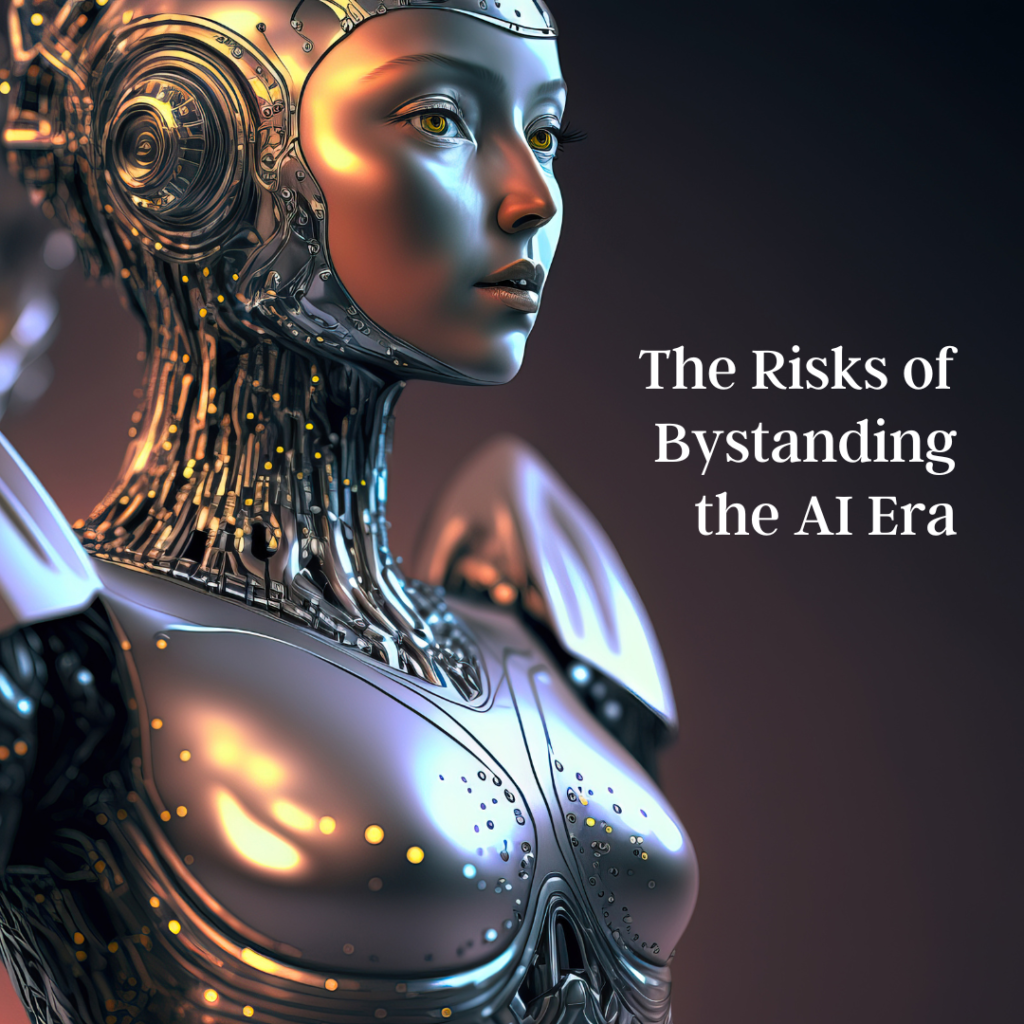Artificial Intelligence (AI), and particularly generative models like GPT (Generative Pre-trained Transformer), have brought about a seismic shift in how businesses operate. Yet, despite the obvious advantages and proven ROI these technologies offer, a significant number of companies remain bystanders in the AI revolution. Why? This hesitation is more than just a missed opportunity—it’s a commercially dangerous position to take. Here are some of the top reasons why many businesses still lag behind and why this inertia is perilous.
Top Reasons for Inertia:
Lack of Understanding and Awareness
For many businesses, the world of AI is as mysterious as it is intriguing. While everyone hears about the miracles AI can perform, a substantial gap exists between this peripheral knowledge and an actionable understanding. Many businesses simply don’t know how to get started, what problems AI can solve for them, or how it aligns with their business strategy.
Budget Constraints
Implementing AI technologies often requires an initial investment that some businesses are either unable or unwilling to make. The assumption that AI is expensive prevents many from even investigating affordable AI solutions tailored for small to medium-sized enterprises (SMEs).
Complexity and Skill Gap
Generative AI models are sophisticated pieces of technology. The expertise required to develop, train, and maintain these models is not trivial. Many companies believe that they lack the internal skills necessary and are often overwhelmed by the perceived complexity.
Data Privacy Concerns
Generative AI models require data—lots of it. Companies often hesitate due to concerns about data security and privacy. Given the stringent data protection laws in various jurisdictions, this is a valid concern but not one that is insurmountable.
Fear of Change
There is a general reluctance towards disruptive technologies, especially among businesses that have been successful with traditional methods. The idea of overhauling existing systems and processes can be daunting, and many companies are wary of the uncertainty that change brings.
The Commercial Danger of Being a Bystander:
Loss of Competitive Edge
Generative AI tools are powerful enablers for business transformation. Companies that adopt these technologies gain a significant advantage over their competitors in terms of automation, data analytics, customer engagement, and more. Not participating in this shift is essentially yielding ground to competitors.
Missing out on Efficiency Gains
Generative AI can automate numerous tasks, from content creation to customer service. The speed and efficiency gains are transformative, allowing companies to do more with less. The longer businesses delay their adoption of AI, the more they lag in operational efficiency.
Inability to Leverage Data
Data is the lifeblood of modern business, and generative AI is one of the best ways to harness it. Companies that do not utilize AI are missing out on crucial insights that could inform strategy, improve products, and enhance customer experiences.
Slow Adaptation to Market Changes
The business landscape is ever-changing. Generative AI models can analyze market trends and consumer behavior at a scale and speed that humans simply cannot match. Without AI, companies are slower to adapt, which could be detrimental in a fast-paced market.
Obsolescence Risk
Finally, the risk of becoming obsolete should not be underestimated. Technologies that were groundbreaking a decade ago are often considered archaic today. Businesses that fail to adapt to new technological trends risk becoming irrelevant.
Being a bystander in the world of generative AI is not a neutral position but a risky one. The challenges and concerns around AI adoption, while valid, are often based on misconceptions or outdated information. In contrast, the commercial risks of not adopting AI—such as losing a competitive edge and becoming less efficient—are very real and immediate.



